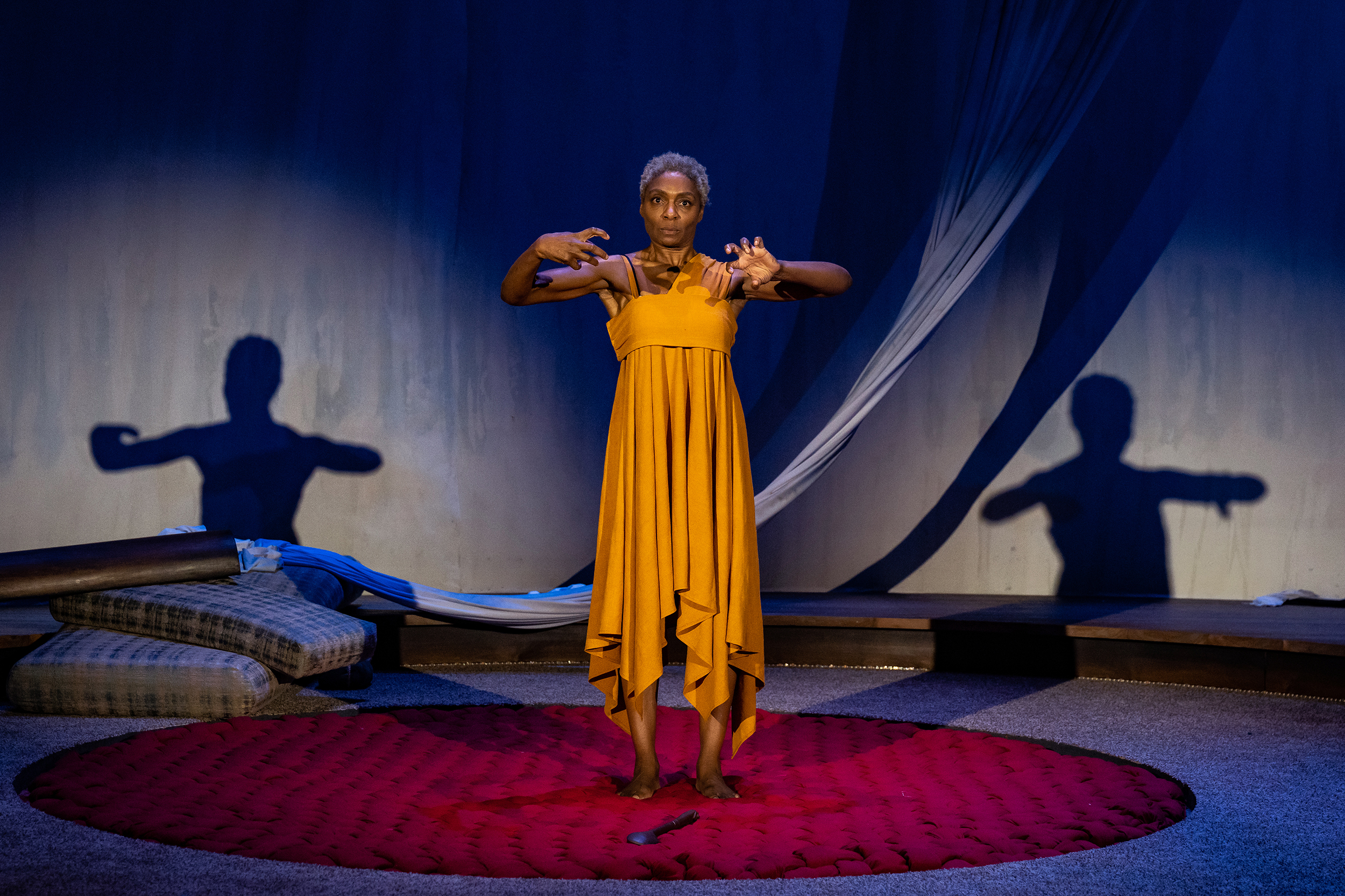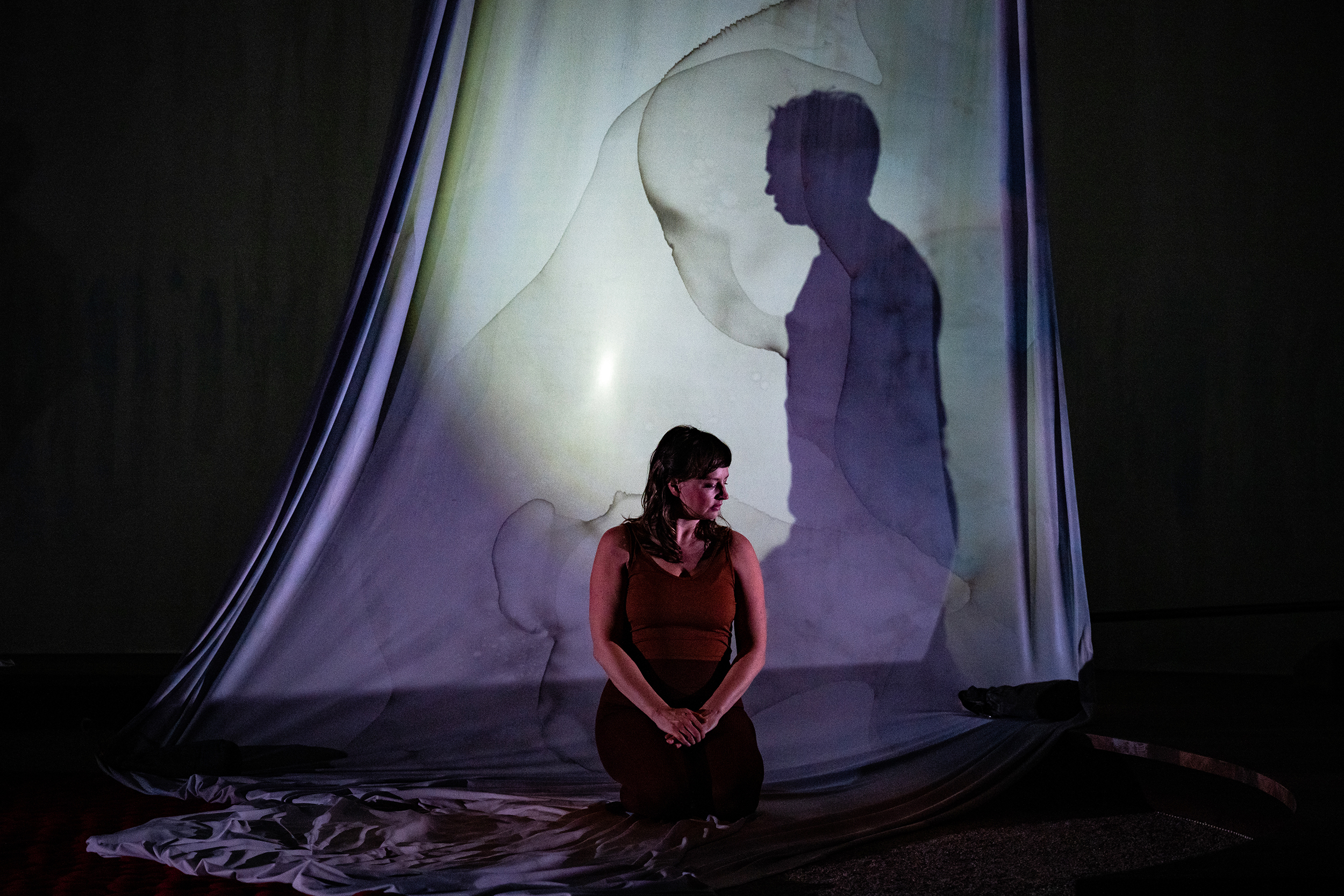"Metamorphoses": An Endless Battle for Justice
Review of Metamorphoses at Seattle Repertory Theatre
Written by Teen Writer Elle Vonada and edited by Audrey Gray

Content warning: sexual assault
Before one’s eyes, actors morph into polarizing characters written by an ancient Roman author. Seattle Rep’s compelling performance of Metamorphoses brings Ovid’s stories into the 21st century, giving reason to why humanity has chosen to preserve his literature. The production’s impact is enhanced by expert stagecraft, made most powerful because of how the 2,000-year old fiction remains relevant to modern society. One would expect humanity to have evolved somewhat in the years since then, but this show reveals that the more things change, the more they remain the same.
The production’s actors all seamlessly became dramatically different characters who embody some of the best and worst aspects of humanity, portraying our innate narcissism, resilience, and corruption through relatable relationship dynamics. Ensemble members Kjerstine Rose Anderson, Nike Imoru, Darragh Kennan, and Meme García alternated between third and first person storytelling, breaking the fourth wall and providing humorous commentary to allow audience members to relate to rash and gruesome people. All of this was accomplished without taking away from the sincerity of the performance.
By making villainous characters easier for the audience to understand, the very real problems they embody are made evident to the audience. Jupiter, an unquenchably power-hungry god, is humanized to display how he epitomizes toxic masculinity in a scene with Juno, who complains how little men value a woman’s experience during sex. As the king of the gods, a man among men, Jupiter embodies power as a necessary precursor to manliness, a belief that has been so socially ingrained that it has evolved with humanity. In Ancient Rome, men like Jupiter represented the belief that women are for sexual and social gratification, solely meant to satisfy the libidos and egos of men.
Metamorphoses compels the viewer to ponder how much this has changed since Ovid’s time. Today’s women remain subject to the male gaze—we are still controlled by a patriarchy that capitalizes on inequity and manipulates the government to keep those in power, stripping people’s rights away to achieve this. Ovid reflects on man’s dangerous thirst for power through stories of “great” men justifying horrific acts with their status. When Tereus sought to destroy Pandion’s kingdom, Athens, Pandion married his 16-year old daughter Procne to Tereus in hopes of peace. Pedophilia and victimization is justified to the male characters because it provides stability to Athens. As stated multiple times in the act, Tereus forcing himself on Procne was not called rape because marital rape was not yet a term. Metamorphoses reveal how little humanity has evolved. “Those that fail to learn from history are doomed to repeat it” is a frequently repeated quote from Winston Churchill, but it omits that repeating history benefits a lot of people who hold power. To avoid repeating history, the patriarchy must be deconstructed.

The show’s creative directors enhance the performance and these themes with set design, costumes, and lighting. Lighting designer Thorn Michaels manipulated lights that communicated the magnitude of the gods by creating imposing shadows on dramatic cloth backdrops. The impermanence of the lighting shifts comments on how quickly the big become small, and how size is relative. Scenic designer Sibyl Wickersheimer and costumer An-lin Dauber collaborated to visually express characters’ transformations through adaptable costumes that interact with the set. The four ensemble members begin barefoot, in plain tight clothing. As the play progresses, the costumes evolve with the characters. In the play’s interpretation of the story of Arachne and Minerva, Arachne, played by Nike Imoru, wears long thick dreads which she braids throughout the scene. Imoru attaches the ends of Arachne’s dreads to elements of the set which ultimately retract toward the ceiling, effecting a startling costume transition from hair to spider legs. Other characters’ transformations are also triggered by ingenious interactions of costume and set. Procne and Philomela’s story concludes with the two turning into birds—to express this, their dresses are lifted to look like their wings.
Actors attaching their own costumes to set pieces indicates to the audience that their fates were set the second their characters were created. Arachne is conceited and seeks to prove her artistry is more complex than Minerva’s. Arachne is punished for her ego when she is transformed into a spider, destined to weave her whole life without ever being seen as an artist. Philomela and Procne are freed when they are released from the bodies which have undergone such agony into the bodies of birds.

Despite the heavy subject matter, the impact of the stagecraft and the humor within the performance prevented the overall effect from being thoroughly disheartening. As Martin Luther King Jr. said, “the arc of the moral universe is long, but it bends toward justice.” Interpretively, slow change is progress. There is hope in new generations. But I question whether true justice will ever be possible. Roe v. Wade was overturned. Procne fed Tereus their child when she was forced to give birth after being raped. Billionaires capitalize on making weapons of mass destruction. Tereus led a violent, barbarous army and bought King Pandion’s daughter with it. Donald Trump takes pride in assaulting women. Jupiter raped human women because he believed his status entitled him to them. Metamorphoses makes it easy to question whether King’s vision for universal egalitarianism is still possible, but reminds us that to give up on his dream would be giving up on the future. Maybe we are in an endless battle for justice, and the day humanity dies is when everyone has killed each other. Who knows?
Metamorphoses took place at Seattle Repertory Theatre on January 27 - February 26, 2023. For more information see here.
Lead Photo: Nike Imoru, Meme García, and Kjerstine Rose Anderson in Metamorphoses (2023) at Seattle Rep. Photo by Nate Watters.
The TeenTix Newsroom is a group of teen writers led by the Teen Editorial Staff. For each review, Newsroom writers work individually with a teen editor to polish their writing for publication. The Teen Editorial Staff is made up of 6 teens who curate the review portion of the TeenTix blog. More information about the Teen Editorial Staff can be found HERE.
The TeenTix Press Corps promotes critical thinking, communication, and information literacy through criticism and journalism practice for teens. For more information about the Press Corps program see HERE.

